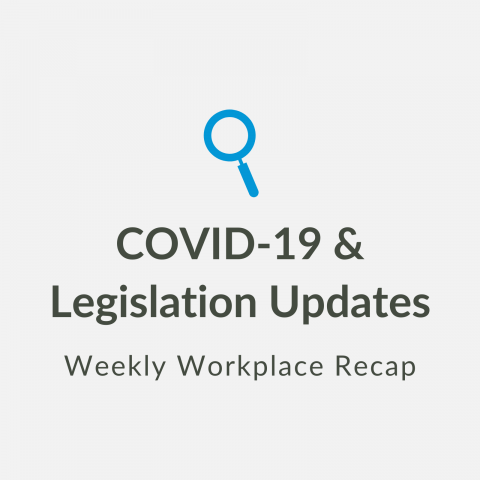Federal
Feds ask for feedback on paid sick leave regulations
The federal government is taking a step towards making 10 days of paid sick leave for workers a reality. Ottawa has opened consultations for the draft regulations that will support implementation of the policy.
Specifically, the government is looking for input on:
- the regular rate of wages for employees who are not paid on the basis of time or who work irregular hours
- the eligibility for paid sick leave for employees who have multiple employers
- the enforcement mechanism and promotion of compliance with the new provisions.
Employers, employer representatives, unions, workers, and other key stakeholders can share their feedback until Aug. 15, 2022.
The draft regulations are available in Part I of the Canada Gazette here.
Ontario
Ontario extends deadline for paid sick days program
The Ontario government has announced it is extending the COVID-19 Worker Income Protection Benefit to March 31, 2023.
Set to expire on July 31, 2022, and introduced in April 2021, the benefit requires employers to provide employees with up to three days of paid infectious disease emergency leave because of certain reasons related to COVID‑19.
This entitlement is in addition to employees’ rights to unpaid infectious disease emergency leave (IDEL).
News Release
Alberta
Alberta Health Services drops vaccine mandate for employees
Healthcare workers and new hires at the Alberta Health Services (AHS) are no longer required to be vaccinated against COVID-19 as a condition for employment.
In a statement, the AHS explained that their mandatory vaccine policy was due to the dominance of the Delta variant in order to prevent its spread among workers, patients, and communities.
Despite the reversal of the mandatory vaccination, however, workers are still required to remain at home when sick, wear personal protective equipment, and practice hand hygiene. AHS adds that evidence will be continuously monitored to assess the need for additional measures.
News Release
British Columbia



